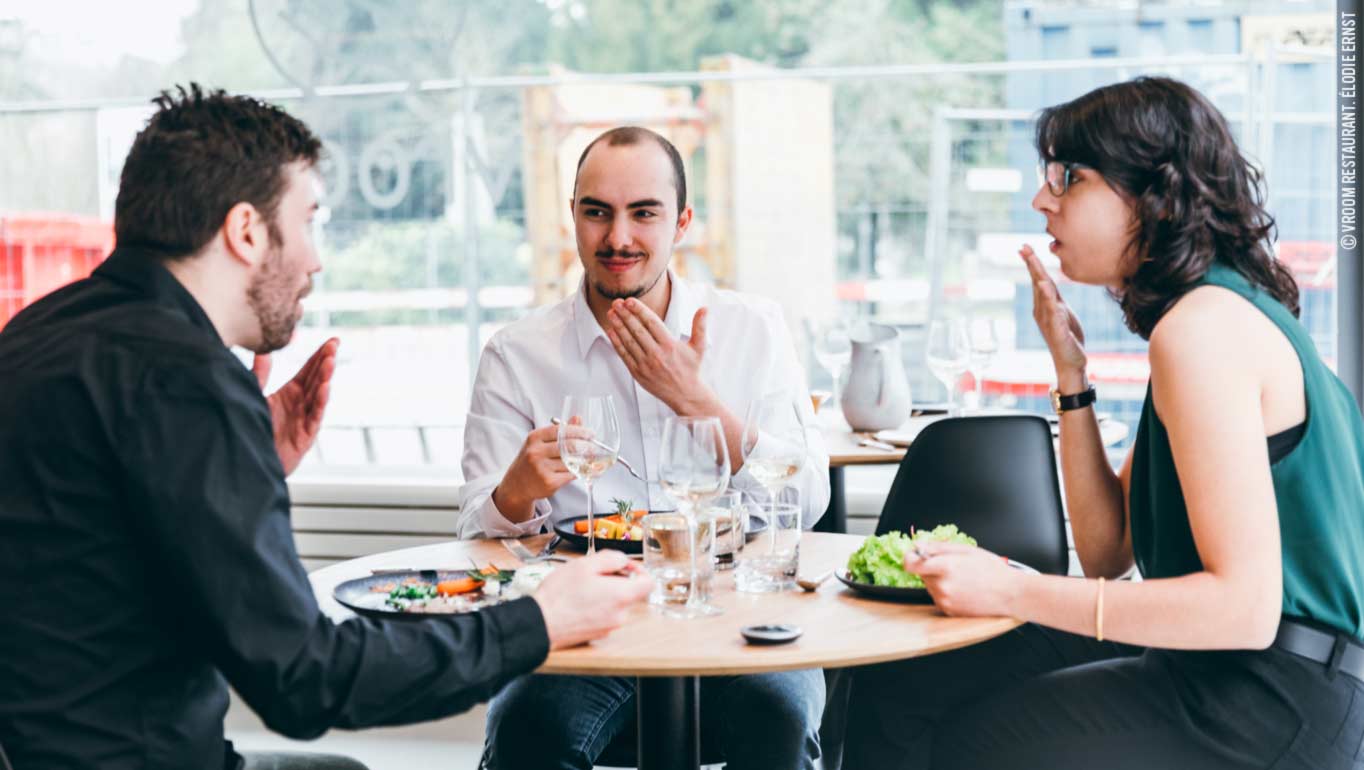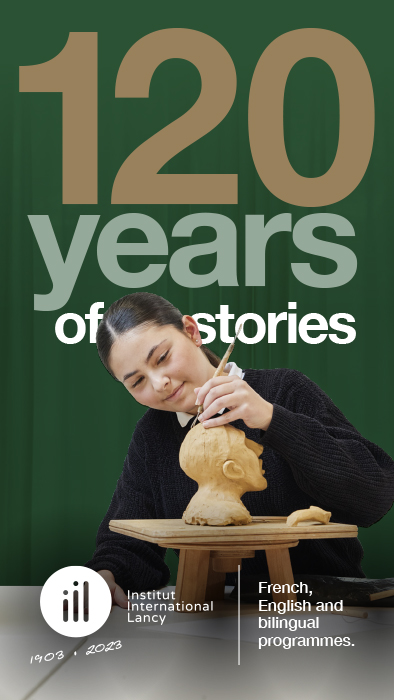One of Geneva’s newest restaurants, Vroom, is working to raise awareness about deafness, sign language, and deaf culture. Open since the start of 2022, Vroom primarily employs deaf and hard-of-hearing people — deconstructing a common stereotype that the deaf are incapable of work and communication.
Deaf and hard-of-hearing people are three times more affected by unemployment, resulting in fewer opportunities to gain experience and build a career. Vroom is evidence that, with the proper adaptations, deaf people are more than capable of employment. Despite the deaf-mute stereotype that persists in society, to be deaf means to understand the world through the eyes rather than the ears, while communicating with the hands as opposed to the mouth. “Deaf people are not mute,” explained the Communications Manager of Restaurant Vroom, Élodie Ernst, “We simply communicate in another way, which is sign language — a separate language like French or English.”
French sign language (LSF) is a visual linguistic system that uses gestures and bodily movements such as hand signals to communicate. It gives deaf and hearing-impaired people access to language, which in turn provides them the opportunity to participate in society and culture. Customers of Vroom are introduced to the world of sign language — with some signs being taught by the servers and through tablets that introduce the menu in LSF, encouraging customers to order through signing. A facilitator is also present in the evenings to chat with clients in LSF and teach some basic sign language.
While the concept of deaf-operated restaurants already exists in several countries, Vroom is unique in its decision to adapt the entire architectural style of the restaurant for the deaf and hearing-impaired. The restaurant features round tables to promote visual contact, large bay windows to let in lots of natural light, and a sound-absorbing ceiling and floor that invite customers to get closer to the silent world of deafness. Vroom has an open design between its kitchen and dining room that allows waiting and kitchen staff to communicate with one another through sign. Wait staff are called through electronic devices on each table that cause a watch on their wrists to vibrate. All the facilities are designed in a way that makes life easier for deaf people while promoting exchange and equality.
The staff at Vroom are proud to represent the restaurant and are greatly satisfied with the positive customer feedback from the first months. They want to keep finding new, creative ways to normalize deafness and push back on the concept of deafness as a disability. “We want to show that we can work very well like everyone else — that we have the abilities and the motivation,” says Ernst. Young people who are deaf or hard-of-hearing are encouraged to train with the company and gain experience that will help them in their professional futures.
The explanation for the name of the restaurant is both simple and delightful. ‘Vroom’ is an onomatopoeia — a word that interprets a noise. The word Vroom imitates the sound that it describes, giving meaning to a noise in a way that allows deaf people to imagine it the same way as hearing people.
The restaurant was established by the newly formed Vroom Foundation that promotes the integration — both professional and social — of deaf and hard-of-hearing people. While the majority of its staff are deaf or hearing-impaired, Vroom promotes diversity and inclusion by also employing hearing people, including a hearing waitress who has started to learn LSF. Integrating both hearing and non-hearing people has helped to break down barriers and sensitize hearing people and employers to the world of deafness and sign language.
In addition to the restaurant, the Vroom Foundation is setting up several activities and events to achieve their aim of integration for the deaf population, from cultural activities such as evenings to raise awareness about deafness, to sign language courses, including classes specifically for parents and their babies or children.
Estimates suggest that around 10,000 people in Switzerland – or 0.1 percent of the population — are profoundly deaf. Professional integration and increased participation in social life will contribute to the effective implementation of the commitments made by Switzerland through its signing of the UN Convention on the Rights of Persons with Disabilities (CRPD) — with the purpose of promoting, protecting, and ensuring the full and equal enjoyment of all human rights and fundamental freedoms by all persons with disabilities.
The founders of Vroom hope that their restaurant will inspire others to set up similar places in Switzerland. Ernst believes that, “The more we fight against prejudice and learn sign language, the easier it will be to achieve cohesion between the deaf and the hearing.”
To discover the world of deafness and enjoy a new culinary experience, check out Vroom Restaurant on Rue des Rois 13 in Geneva. For more information or to browse the menu, visit vroomgeneve.ch




